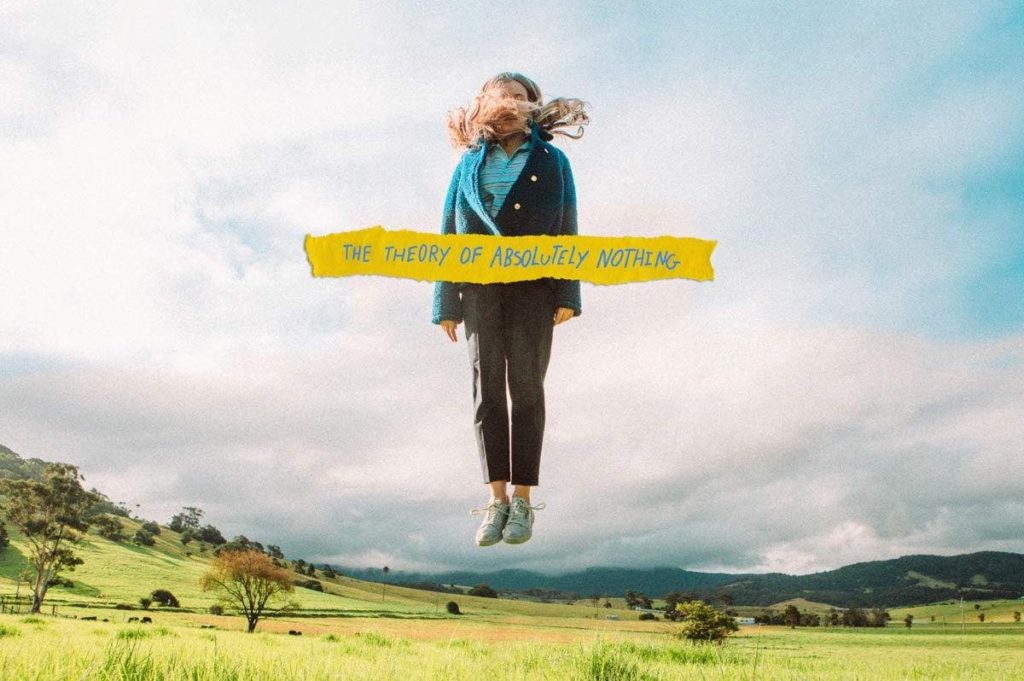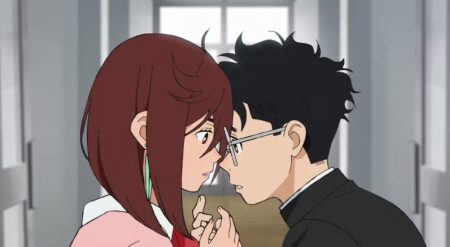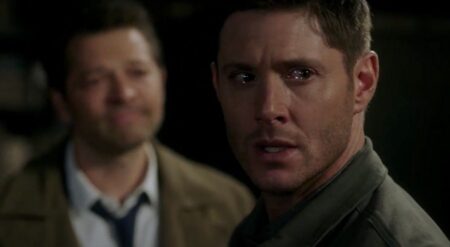
After several years of singles and EPs and a rollout of music videos every month of 2020, folk-pop/rock artist Alexandra Lynn aka Alex the Astronaut has released her first full album The Theory of Absolutely Nothing under the label Nettwork.
As a whole, the album delivers great song after great song. Many of Alex the Astronaut’s songs are short stories, sometimes drawn from her own life, and sometimes well-researched. Her lyrics are excellent and poetic. They could not care less about rhyme scheme or meter and I am so here for it. I truly appreciate how many of the songs play so loosely with meter that sentences constantly overflow or come up short. This allows Alex to deliver the words freely without worrying if they’ll fit into a clean number of syllables or not.
While many of the songs do start to sound somewhat the same melodically, the lyrics and themes are always distinct and keep the songs unique all on their own. I can’t tell whether the frequently reverbing, echoing vocals in <em>The Theory of Absolutely Nothing </em>are over-production, if they are a benign artifact of the genre, or if they’re a kitchy reference to the act’s astronomical theme. I do like the occasional lyrical references to outer space though, whether they are purposely on-theme or not. Regardless, generally, the instrumentation and layering is befitting each song’s theme quite well.
As a whole, The Theory of Absolutely Nothing is an outstanding album and an excellent debut for Alex the Astronaut.
Content Warning*
“Happy Song“
An upbeat sad song, “Happy Song” is the perfect first tune on Alex the Astronaut’s debut album as the melody bounces with the loose gravity of a spacefaring heartbreak. The uneven gait of each stanza, while the pitch of the melody bobs up and down between fourth and fifth jumps, is the sonic equivalent of frolicking on the moon. It’s close enough to Earth for the breakup to still hurt, but far enough to get some healthy distance. And besides, “Will it still be over always, I don’t know?” There’s no sense in wallowing in what was, or what could be, while you watch your friends dance. It’s best to put on an upbeat song like “Happy Song” to bring levity to the dower mood.
“Lost“
This song is the story about a high schooler with a positive pregnancy test. Lyrically, the song is smart and it moves with the breakneck pace of a high school couple whose minds are absolutely spinning over how to respond to “A positive sign, on a stick, made of plastic.” The melody and instrumentation are on-point too. The monotonous electric guitar turns to synth at the recognization that everyone’s just putting on fake emotions. It muddles everything for a few moments like the moment of haze when depression first settles over you. Then the haze is gone and the manic hand-clapping, drum slapping chaos of a spiral kicks in. The chorus is basically the upsidedown smiley face emoji with its everything’s fine demeanor on top of somewhat panicky lyrics. The song is also set within a small range of repeating notes, adding a sense of appropriate claustrophobia to everything.
“Split the Sky“
What begins in “Split the Sky” as a lamentation on lost childhood and the passage of time quickly shuffles off that bummer of a theme to bop on about the power of taking hold of the future; the strength in saying “I’ll walk outside, I’ll split the sky, I’ll be alright.” I appreciate the way the instrumentation changes from verse to verse and chorus to chorus, applying a slightly different attitude towards the same words and circumstances. It shows how whether you’re stuck at home rewatching Harry Potter for the umpteenth time or living it up and puking in taxis with friends, all of the accompanying emotions are valid. When the song concludes with a timbre somewhere in the middle of the melancholic first verse and the pumped-up second verse, it drives home the final verse’s reflection on the changing of moods being as natural as the seasons or the tide.
*”I Like to Dance“
“I like to Dance” is a powerful vignette about an abusive relationship. Its lyrics perfectly incapsulate every last drop of the emotional manipulation, self-doubt, and gaslighting. Lines like “I just wish he’d stop” and “He didn’t want to be like this,” are just a few of seemingly endless examples. The combo of guitar, strings, and keyboard set the mood exactly right with a pensive tone neither too dismal nor too hopeful. it leaves you exactly in that medium the song’s words describe so well: you can’t get too upset and leave but you can’t get too comfortable because you’ll only be broken over again. Harrowing and spectacularly executed.
“I Didn’t Know”
The first song on The Theory of Everything in a minor key, “I Didn’t Know” may be the most positive song on the album. It’s about moving on, full-force beyond a relationship with unreciprocated commitment. The driving drum beat and guitar, smartly played in an octave above Alex’s vocals push the story forward unceasingly. There is no time in this song for petty problems like having “Spent all my tanks, you’ve left them empty” to slow anybody down. Short and sweet, when the keyboard comes in under the chorus, the pace never slows, but some breathing room feels like it opens up and suddenly, “I Didn’t Know” becomes a sharp juxtaposition to “I Like to Dance.” Where the former leaves you unsure whether the cycle of misery in a bad relationship can ever be broken, the latter shattered that thought six miles ago and begs you to catch up.
“Caught in the Middle“
I wasn’t even sure until “Caught in the Middle” if The Theory of Absolutely Nothing would have a genuinely happy song. Another short and simple tune, “Caught in the Middle” starts as a simple acoustic diddy telling the story of some folks growing older, having kids, being unsure exactly of the future, and getting caught in air-guitar fueled daydreams. A second guitar, an electric whistle, and eventually the now-familiar clap-clap clap come in once the song really gets going and solidifies “Caught in the Middle” as just a downright fun tune to get you jazzed about what the future could hold. The final line “Everyone is chasing after the life that they’re in” feels like it’s saying that the thrills we’re chasing are actually right here all along. And because the song, just like nearly every track on the album, is just so upbeat, you absolutely believe it.
“Christmas in July“
Look, I just spent probably a half an hour the other day talking with some other Jewish friends about what Christmas Joy is and what might it feel like. I think “Christmas in July,” especially its simple, cute, and pandemic-friendly music video helped illustrate it rather clearly. Adorned with a classic Christmas-esque D-major ballad structure, a subtle xylophone, and a lot of warmth, this song is just simply joyous. “The Grinch has come to dine with all the Whos” and frankly, what could be more wholesome than that? The video sees Alex in a penguin beanie and cardboard box covered in wrapping paper take a stroll to a friend’s place, knock on the door, and present herself as the gift as she joins friends for Christmas. It’s just the best.
“Banksia“
Mourning the loss of a friend who died too young, “Banksia” is certainly a nice song, but by no means a stand-out. It mixes things up sound-wise in the final quarter of the album by throwing in a choir, but I think the song is perhaps a bit over-produced. It’s one of the most emotional songs on the record, with lyrics as poignant as any of The Theory of Absolutely Nothing‘s tracks. But perhaps if it had just stuck with the acoustic guitar and not layered in the keyboard on top of it so profoundly, the “Banskia” would not feel like the late-album slump it remains.
“I Think You’re Great“
A bit more of a pop-rock song than some of the other pieces on the album, “I Think You’re Great” is an uplifting jam. “You don’t always have to smile. You don’t only have to cry at night.” Perfectly pure. A straightforward arrangement keeps the song simple and clean to head-bob over while thinking about somebody you think is great and aught to tell.
“San Fransisco”
A perfect conclusion to The Theory of Absolutely Nothing, “San Fransisco” finally breaks out of the small vocal range of the rest of the album. The song starts grounded with a simple guitar but a high-pitched, echoey synth and later a keyboard and second guitar make the song feel extra light and floaty. As the bridge kicks in though, after the second chorus, the song quickly lifts off and goes on to float about in the exosphere. Of course, the astronautical lyrics help draw this imagery clearly. But once the album’s final track reaches orbit and returns briefly to an unfiltered acoustic guitar, everything is aloft and at peace.
“Outro”
Not a song, but this brief thanks Alex gives at the end of the album for sticking it through and giving it a listen is quite pure and deserves not to be skipped.
Alex the Astronaut’s debut album The Theory of Absolutely Nothing is a splendid album rich with creative, poetic, and meaningful lyrics; each track uplifting whether melancholy, heartfelt, or just charming.
The Theory of Absolutely Nothing
TL;DR
Alex the Astronaut’s debut album The Theory of Absolutely Nothing is a splendid album rich with creative, poetic, and meaningful lyrics; each track uplifting whether melancholy, heartfelt, or just charming.









